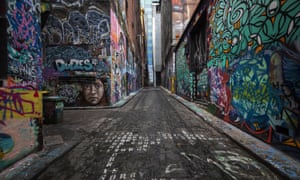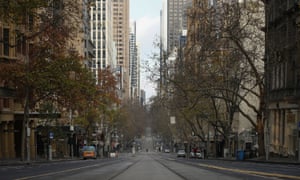
Reuters: The cascading effects of coronavirus restrictions are hampering efforts to cope with seasonal outbreaks of dengue, an incurable, mosquito-borne disease that is also known as breakbone fever” for its severely painful symptoms.
Southeast Asian countries like Singapore and Indonesia have dealt with concurrent outbreaks of dengue and coronavirus this year. In Brazil, where there are over 1.6 million Covid-19 infections, at least 1.1 million cases of dengue have been reported, with nearly 400 deaths, according to the Pan American Health Organization.
2019 was the worst year on record for dengue, and cases are likely to rise soon with the start of seasonal rains in Latin American countries like Cuba, Chile and Costa Rica, as well as the South Asian countries of India and Pakistan.
Dengue typically isn’t fatal, but severe cases may require hospitalisation.
Prevention efforts targeted at destroying mosquito-breeding sites, like removing trash or old tires and other objects containing standing water, are still the best ways to curb the spread of the disease. But coronavirus-era lockdowns and other restrictions have meant that these efforts have been reduced or stopped altogether in many countries.
After just over a month of eased restrictions, Melbourne is facing its second round of stage three lockdowns. After the first round, Melburnians are feeling older, more tired and perhaps a bit wiser.
From shaving to survivor to whirlwind romances, these are some of the stay-home behaviours they are planning on changing this time.
Hong Kong enters first sustained local outbreak: health expert
Hong Kong health authorities have confirmed a record high number of locally-transmitted cases, about 50 of which can’t be traced to a previous infection.
Head of Hong Kong University’s school of medicine, Dr Gabriel Leung, told local media today that the reproductive number of the virus has risen to nearly four. This means every infected person could now be expected to pass it on to almost four others.
“Given the high baseline rate and [that] there is no sign of abatement of this trajectory and that real-time reproductive number of three to four, I think that we have now, or we have already entered Hong Kong’s first sustained local outbreak”, Leung said.
279 new cases in Australia
Some of the Australian statistics, shared by Coatsworth just now:
- The number of cases confirmed in the 24 hours to noon is 279, of which 273 are in Victoria.
- There have been five cases diagnosed in New South Wales, two of those individuals were in hotel quarantine and had acquired their infection overseas.
- Three are local cases, who are household contacts of one of the people who contracted Covid-19 in south-west Sydney.
- 7,728 people have recovered from Covid-19 and in terms of current hospitalisation, 67 people are hospitalised and 17 of those are in intensive care units.
- “It is critically important that if you were [at the Crossroads pub in Casula, NSW] during 3 July and 10 July, that you get yourself tested… including freight drivers, because that is a particular venue that is also frequented by people who do transnational freight driving.”
- The New South Wales Health Department has recommended an increase in personal protective equipment for the hospitals in both local health districts around Casula.
“It’s possible the death toll will increase,” says Coatsworth.
But the measures being taken now are precisely to avoid seeing the kind of death tolls currently overseas, and the government has learned a lot since the first round of lockdowns, he says, including new medications, and new understandings of how to care for patients.
Coatsworth is asked about the Australian government Covid-19 app, which seeks to identify close contacts of people diagnosed.
There has been only one case in Victoria identified during contact tracing, who was then found to not be a significant contact. It’s not doing any better than the current extensive contact tracing being done by health workers.
He concedes there’s a significant difference between the 6.5m downloads of the app, and how many people actually have it running, and urges people to be more vigilant with it.
He says the more people who download and run the app the fewer transmissions of Covid-19 there will be. He says if you’re a supporter of mask wearing then you should be supportive of downloading and running the app.
Asked about any changing understandings about children in the virus (in the context of Victorian students in lockdown returning to remote learning) Coatsworth said the “overwhelming evidence around the world is that children are less affected by Covid-19”.
“There seems to be less onward transmission and therefore schools are safer from a Covid-19 perspective when compared to influenza, where children of that age are the main transmitters.”
He said the school closure are “primarily about the reduction of movement”.
Australia’s deputy chief medical officer, Dr Nick Coatsworth, is giving an update.
Asked about the Casula outbreak in NSW, he says it would be “a very significant event” for the state to move towards the outbreak of a scale that it is in Victoria.
“We share the concern of the NSW Premier, which is why we are meeting on a daily basis to assist the Chief health officers of both states in developing their strategies and making sure that the small spot fires that have occurred in south-west Sydney are put out as quickly as possible.”
Some more details from NSW, where authorities are working to track and trace cases clusters around a pub in Casula, while also working to ensure cases haven’t been brought in from Victoria (given recent school holiday activity).
We posted earlier that authorities are now calling for anyone who went to the Crossroads hotel between 3 and 10 July to get tested. So far 400 people who were there on 3 July have been tested.
A pop-up clinic at the hotel is open to 5pm, but extended-hours testing is also available at Liverpool, Campbelltown and Fairfield Hospitals (pdf), and at GP clinics.
Additional testing clinics have also been set up in border areas and traveller areas of high demand, expected at Victorian traveller locations (i.e. Byron Bay, Ballina, Merimbula & NSW Ski fields), and Newcastle.
There are 72 Covid-19 cases being treated by NSW Health, with one in intensive care, the NSW government said. This person does not require a ventilator. In NSW, 2,799 people are known to have recovered from Covid-19.
Western Australia has detected one new coronavirus case, bringing the state’s total to 635.
WA now has 22 active Covid-19 cases, and all are returning travellers in mandatory hotel quarantine.
In a grim harking back to March, Australia is once again seeing moody photographs of major cities devoid of people.

Empty streets at Hosier Lane in Melbourne, Sunday, July 12, 2020. Premier Daniel Andrews has issued a plea to all Victorians to follow the latest lockdown rules, as the state recorded 273 new cases and another death. Photograph: Daniel Pockett/AAP

Empty streets at Collins Street in Melbourne, Sunday, July 12, 2020. Photograph: Daniel Pockett/AAP
Analysts forecast China will be the only major economy to experience positive growth this year – partly because it was first to be hit by Covid-19 and therefore first to recover.
According to a poll of analysts conducted by Agence France Presse, China returned to growth in the second quarter after the coronavirus pandemic handed the world’s second largest economy its first contraction in decades.
The survey of analysts from 11 institutions pegged China’s growth at 1.3% – a far cry from the 6.1% expansion posted last year but in better shape than other countries still grappling with the contagion.
The coronavirus, which first emerged in China’s industrial central province of Hubei late last year, has shut businesses worldwide and destroyed hundreds of millions of jobs.
China is expected to post 1.7% growth for the full year, according to the economists surveyed by AFP, compared with IMF forecasts of a global contraction.
248 new cases in Germany
The number of confirmed coronavirus cases in Germany increased by 248 to 198,804, data from the Robert Koch Institute (RKI) for infectious diseases showed on Sunday.
The reported Covid-19 death toll rose by three to 9,063, the tally showed.
One new case has been reported in New Zealand, a woman in her 20s who flew in from Rome, via Doha and Sydney, last week. The ministry of health said she had been in managed isolation at the Christchurch Commodore Airport Hotel and is now in quarantine.
It has been 72 days since the last case of Covid-19 was acquired locally from an unknown source.
New Zealand has had 1,194 confirmed cases, 25 of which remain active (none are receiving hospital level care).


